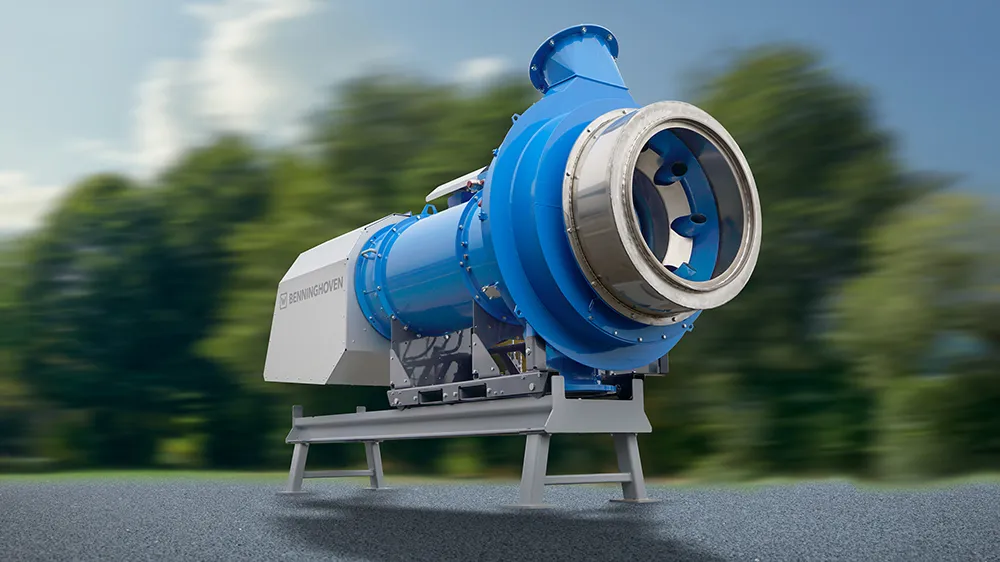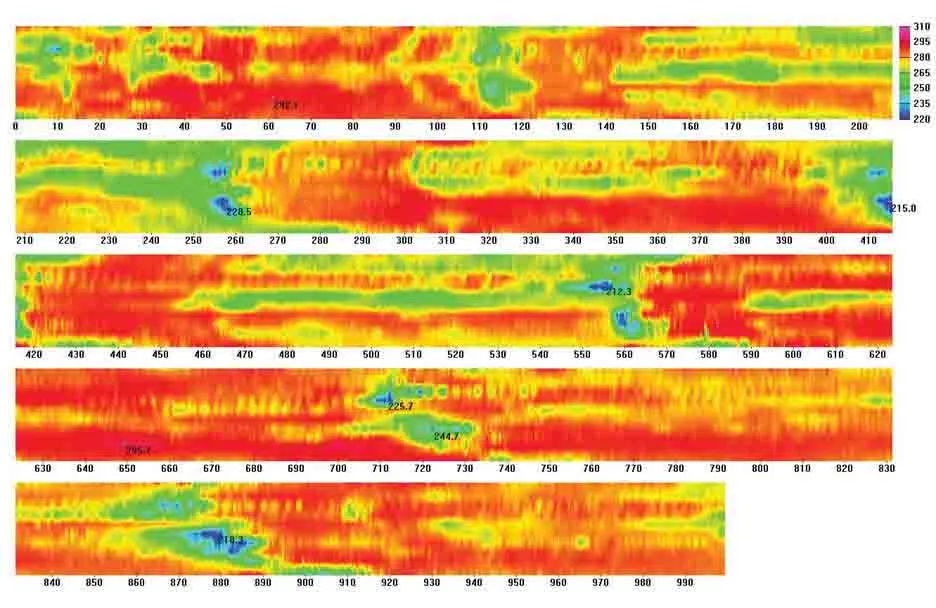
Dr Volker Knickel, CEO of the Wirtgen Group said that the firm is working to deliver sustainable and efficient road construction technologies. Warm asphalt plays a key role in sustainable road construction and will grow in use in the next few years. Dr Knickel commented that sustainability will be of increasing importance for contractors, while in Germany there are also stricter regulations on reducing the exposure site personnel to VOCs.
Using warm asphalt does brings its own complexities though and Dr Knickel said, “It’s a challenge for our customers as it’s cooler and you have to be faster. You have to be more precise with everything you do, with how long you take to lay the asphalt and compact it.”
An efficient process is the key and he added, “You need to be more ready and there’s less room for mistakes. You have to have a consistent process as there is less time.”
Dr Knickel said that the Wirtgen Group has been working on systems that will help customers to utilise warm asphalt reliably. Using additives or foaming can help to get the necessary viscosity. Meanwhile, employing a material transfer vehicle makes the paving process more controlled and consistent, with heated conveyor belt to prevent both heat and aggregate segregation.
When it comes to delivering the speedy and efficient compaction needed for warm asphalt, Wirtgen also has solutions and Dr Knickel said, “We think the best solution for compacting warm mix asphalt is oscillation.” In addition, he said that the firm’s new asphalt compaction real-time density measurement technology Smart Compact Pro will play a key role in delivering effective compaction.
The firm’s John Deere Operations Center as digital platform for the roadbuilding ECO-system will also be important for customers, providing key data for operations according to Dr Knickel. He said, “How we weave the digital thread into the customers’ production systems is important.”
Performance tracking solutions help deliver the digital transformation for customers. He continued, “You have a full understanding of what you have and you can learn from it.”
Parent company John Deere has its own division to develop technologies and Dr Knickel said that this has been transformational for the Wirtgen Group, “We don’t have to worry about the fundamentals but can go straight into applications.”
Dr Knickel explained, ”We don’t just sell you a machine, we sell you a solution for an entire production system. You make sure that the data is there to get everything right.”
The Wirtgen Group is also researching alternative fuels for use in road construction and using hydrogen to fuel an asphalt plant provides an important solution for reducing CO2 emissions. Dr Knickel put this in context, “About 50 large milling machines will use as much fuel as one asphalt plant.”
He explained that the wisest way to reduce the CO2 emissions the most is to use alternative fuels from renewable sources ranging from wood dust to liquefied biomass (BtL) or hydrogen to fuel the asphalt plant and to increase input rates of recycled material, rather than mobile machines. Fuel burned by road machines in a typical road construction job will account for just 4-8% of the fuel used in total for the project. By comparison, the fuel used in producing the materials equates to around 70% of the fuel (when using H2 + 90% RAP) consumed to deliver a construction project.
Dr Knickel added, “To reduce greenhouse gas emissions, we think asphalt plants are the best place to put the money."
By comparison, the infrastructure supply chain for hydrogen to mobile machines will be a more difficult challenge. Some companies are looking at having electrolysis facilities to produce hydrogen close to asphalt production sites. However, the supply of sufficient quantities of green hydrogen for industrial purposes remains a challenge. Hydrogen holds a huge potential as a future fuel and Dr Knickel said, “If you get the infrastructure in place, the technology will be ready.”









